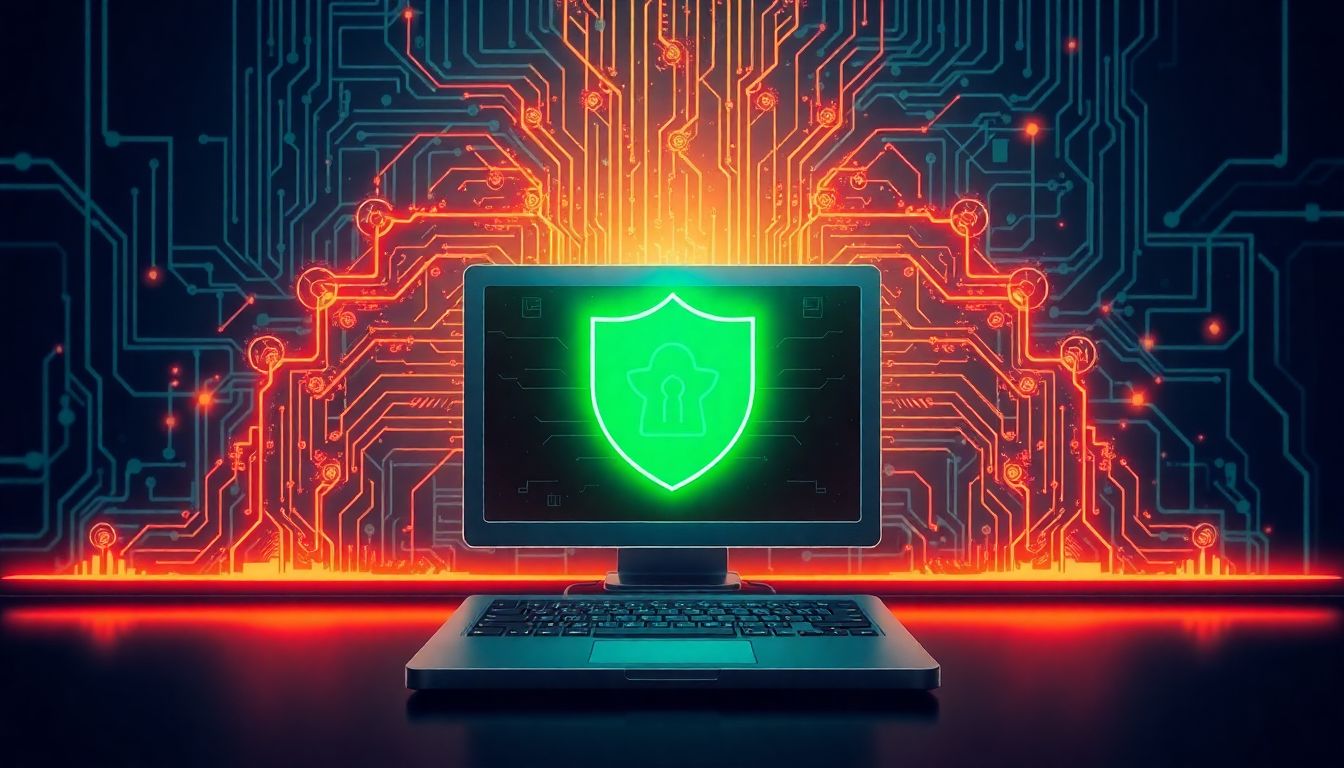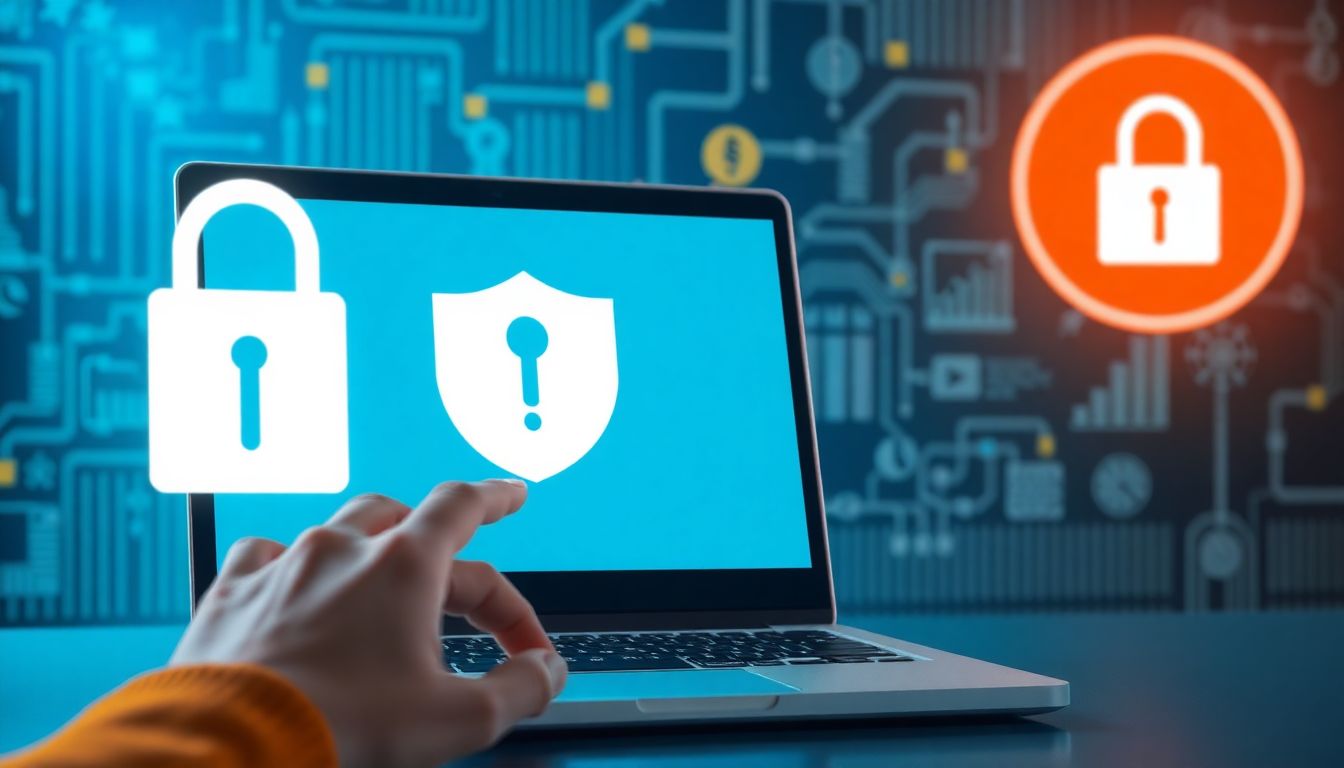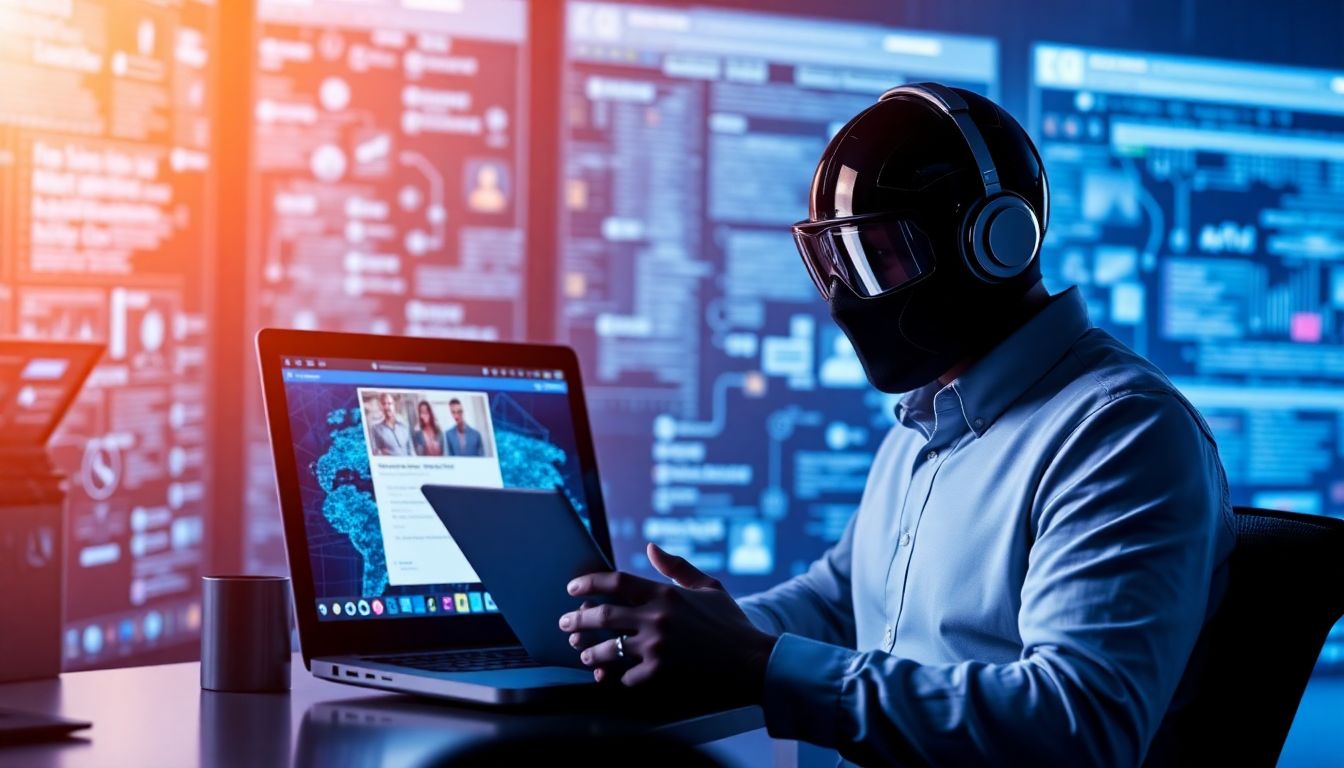 In the ever-evolving landscape of cybersecurity, the question isn't just "how can you prevent viruses and malicious software?" It's about staying one step ahead of the digital threats that lurk around every corner of the internet. Not a week goes by without a new headline screaming about the latest breach or the newest strand of malware wreaking havoc. If there’s one thing I've learned from years in the tech trenches, it’s this: the best defense is a well-informed offense. So, let's cut through the noise and get straight to the brass tacks on how to keep your digital life secure.
In the ever-evolving landscape of cybersecurity, the question isn't just "how can you prevent viruses and malicious software?" It's about staying one step ahead of the digital threats that lurk around every corner of the internet. Not a week goes by without a new headline screaming about the latest breach or the newest strand of malware wreaking havoc. If there’s one thing I've learned from years in the tech trenches, it’s this: the best defense is a well-informed offense. So, let's cut through the noise and get straight to the brass tacks on how to keep your digital life secure.
Preventing Viruses and Malware
Learn effective strategies to safeguard your computer from viruses and malicious software.
- Install and update antivirus software: A reliable antivirus program is essential for detecting and removing threats, and keeping it updated ensures maximum protection.
- Stay cautious online: Avoid suspicious links, websites, and downloads, and always use strong passwords to enhance your cybersecurity.
- Utilize built-in security features: Enable your firewall and consider using private browsing modes or pop-up blockers to limit exposure to harmful content.
1. Install Antivirus Software
Antivirus software is your first line of defense against malicious threats. It's akin to having a security guard at the gates of your digital kingdom. I remember the early years of my career when I dismissed antivirus as mere add-ons, thinking I was tech-savvy enough to dodge threats on my own. Until, of course, a particularly nasty Trojan taught me the error of my ways.
Antivirus programs like Norton and Bitdefender are not just about scanning for threats; they proactively monitor and eliminate suspicious activities before they become full-blown infections. According to a 2024 report by Cybersecurity Ventures, companies that employed comprehensive antivirus solutions saw a reduction in malware incidents by up to 60%.
Insider Tip: Always go for a paid version. Free versions might leave out essential features like real-time scanning and ransomware protection.
Personal Experience: The Importance of Antivirus Software
A few years ago, I encountered a situation that taught me the critical importance of having reliable antivirus software installed on my computer. At the time, I was working on a project for a client that involved handling sensitive data. I was busy and, in a moment of distraction, I clicked on an email link that appeared to be from a reputable source.
Almost immediately, my computer began to behave strangely. Programs were opening and closing on their own, and I noticed unfamiliar files being created on my desktop. Panic set in as I realized I had likely downloaded malware. Thankfully, I had installed an antivirus program just a month prior.
I quickly ran a full system scan, and within minutes, the software detected and quarantined the malicious files. It was a wake-up call for me. Had I not taken the precaution of installing antivirus software, I could have compromised not just my data, but also the sensitive information belonging to my client.
This experience reinforced my understanding of the necessity of preventative measures in digital security. Since then, I’ve made it a point to keep my antivirus software updated and to be more vigilant about the links I click. This incident was a stark reminder that in the fast-paced digital world, a moment's oversight can lead to significant consequences.
2. Keep Your Antivirus Software Up to Date
Having antivirus software is merely the beginning. Keeping it updated is critical. Cyber threats are like viruses that mutate; they evolve rapidly, and so should your defenses. I recall a peer who ran an outdated antivirus software, believing his system was secure. His computer was eventually compromised by a new malware strain that his software couldn't recognize.
Most antivirus programs offer automatic updates, but never assume it's functioning correctly. Check your software settings regularly to ensure automatic updates are enabled. According to a study published in the Journal of Cybersecurity, systems with outdated security software are 40% more likely to be compromised.
Insider Tip: Schedule weekly reminders to manually check for updates if your software doesn’t automatically update.
3. Turn On Your Firewall
Your firewall is another vital component of your computer's defense system. It's the barrier between your internal network and incoming traffic. During my early days in IT, I saw a small business suffer because they thought firewalls were optional. The resulting breach was both an expensive and painful lesson.
A firewall can prevent unauthorized access to your network and stop malware from communicating with its command center. The National Institute of Standards and Technology (NIST) states that firewalls are critical in reducing the risk of cyberattacks by up to 58%.
Insider Tip: Use both hardware and software firewalls for a multi-layered defense approach.

4. Keep Your Operating System and Software Up to Date
An outdated operating system is like leaving your front door wide open. I once neglected to update my OS, and within weeks, I was grappling with a ransomware attack. Not only did I lose essential data, but the embarrassment was a bitter pill to swallow.
Operating system updates often include patches for security vulnerabilities that hackers are eager to exploit. According to Microsoft’s Security Intelligence Report, over 70% of exploited vulnerabilities could have been mitigated with up-to-date systems.
Insider Tip: Enable automatic updates on your OS, and for those using Windows, the Microsoft Update Catalog is a great resource to manually download recent patches.
5. Use Strong Passwords
Passwords are your first line of defense, yet many treat them as an afterthought. I recall a colleague who used 'password123' for years. It was only a matter of time before his accounts were compromised. Creating unique and complex passwords for each account is vital.
A strong password is typically at least 12 characters long, includes numbers, symbols, and both uppercase and lowercase letters. A 2023 report from the Ponemon Institute revealed that 81% of hacking-related breaches leveraged either stolen or weak passwords.
Insider Tip: Use a password manager like LastPass or 1Password to generate and store strong passwords securely.
6. Be Careful What You Download
The internet is littered with enticing downloads that promise the world but deliver malware. I once downloaded what I thought was a legitimate PDF editor—only to find my computer infected with spyware. It was a sobering reminder to verify the source before clicking "download."
Always download software from official websites or trusted sources. According to a McAfee report, 33% of all malware is distributed through software downloads.
Insider Tip: Before downloading, read reviews and check forums for user experiences to ensure the software’s legitimacy.

7. Avoid Suspicious Links and Websites
Phishing scams are getting more sophisticated, and it takes a trained eye to spot them. A few years ago, I received an email that looked identical to one from my bank. The link was a trap, and had I not noticed the slight URL discrepancy, I could have lost sensitive information.
Always hover over links to view the full URL before clicking. According to the Anti-Phishing Working Group, phishing attacks increased by 65% from 2023 to 2024, highlighting the growing threat.
Insider Tip: Use browser extensions like Web of Trust (WOT) to evaluate the safety of websites before you visit them.
8. Use a Pop-Up Blocker
Pop-ups are not just annoying; they can be dangerous. I remember when a pop-up claimed I had won a prize, urging me to click a link. Thankfully, my skepticism saved me from what would have been a costly mistake.
Pop-up blockers can protect you from malicious ads that might harbor malware. According to Google, pop-up ads are a common vector for distributing malware, accounting for 25% of malicious ad campaigns.
Insider Tip: Enable pop-up blocking in your browser settings and consider using additional extensions like uBlock Origin for enhanced protection.
9. Use Private Browsing Mode
Private browsing isn't just for hiding your search history; it can also provide a layer of security against tracking cookies and prying eyes. During a conference, a cybersecurity expert demonstrated how easily regular browsing could expose personal data, making a compelling case for private mode.
Private browsing doesn't save cookies, history, or form data, which can help reduce the risk of being tracked by malicious sites. While it’s not foolproof, it’s an additional step in safeguarding your privacy online.
Insider Tip: Use VPN services in conjunction with private browsing to further enhance your online privacy and security.

10. Back Up Your Files
Backing up your files is like having a digital insurance policy. I learned this the hard way when a ransomware attack encrypted all my important work documents. Without backups, I would have been at a total loss.
Regularly backing up your files ensures that even if malware strikes, you have a clean copy of your data. The 2024 Global Data Backup Survey found that regular backups could prevent 75% of data loss incidents.
Insider Tip: Use both cloud-based storage and external hard drives for backups, ensuring one is always offline to prevent ransomware from encrypting all copies.
Conclusion
In the grand chess game of cybersecurity, being proactive is your best strategy. The digital world is fraught with dangers, but with these 10 robust measures, you can significantly reduce your risk of falling victim to viruses and malware. Remember, security isn't a one-time setup; it's a continuous process. By staying informed and vigilant, you can safeguard your digital kingdom against the relentless onslaught of malicious threats. For more in-depth strategies and expert insights, stay tuned to trusted cybersecurity resources, and keep your defenses robust and resilient.
Questions & Answers
What are effective ways to prevent viruses and malware?
You can prevent viruses by using antivirus software and regular updates.
How can you protect your devices from malicious attacks?
Protect your devices by enabling firewalls and avoiding suspicious links.
Who should regularly update their security software?
Everyone using a device connected to the internet should update regularly.
What should I do if I suspect a virus on my device?
Immediately run a full scan with your antivirus software to identify threats.
How can you educate others about cybersecurity risks?
Share resources and tips on safe internet practices with friends and family.
Some say antivirus software is unnecessary; is that true?
Antivirus is essential as it adds a layer of protection against threats.
No comments:
Post a Comment